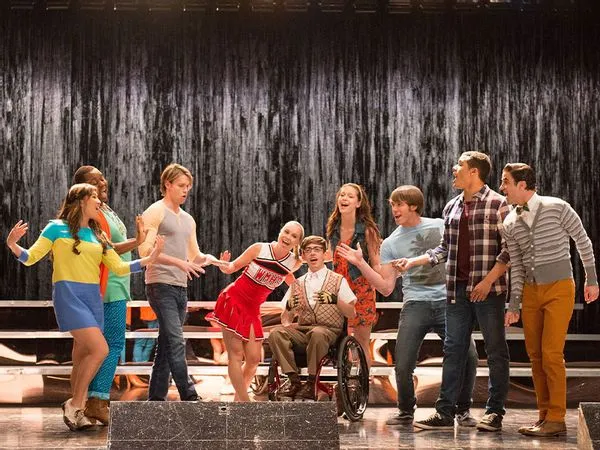The year 2009 marked a significant turning point in television history, as the musical comedy-drama “Glee” premiered on Fox, capturing the hearts of audiences worldwide. The show’s innovative blend of witty dialogue, relatable characters, and catchy musical numbers catapulted it to unforeseen heights of success, cementing its status as a cultural phenomenon. As the years have gone by, the impact of “Glee” has only continued to grow, leaving behind a rich musical legacy that bears testament to its timeless appeal.
One of the most striking aspects of “Glee” was its bold approach to tackling complex social issues, using music as a means to break down barriers and bring people together. The show’s exploration of themes such as identity, relationships, and self-acceptance resonated deeply with viewers, particularly within the LGBTQ+ community, who saw themselves reflected in the characters. Rachel Berry’s (Lea Michele) struggles with her nonconformity, Kurt Hummel’s (Chris Colfer) journey of self-discovery, and Mercedes Jones’ (Amber Riley) unyielding confidence, all served as powerful beacons of hope and acceptance.
The show’s creativity in reimagining hit songs from various genres, from classic rock to pop and show tunes, was unparalleled. Who could forget the iconic rendition of “Don’t Stop Believin'” by Jonathan Groff as Jesse St. James, or the show-stopping performance of “Defying Gravity” by the entire cast? These unforgettable moments not only showcased the actors’ impressive vocal talents but also expertly incorporated music into the narrative, making it an integral part of the show’s DNA.
The “Glee” soundtrack, featuring an impressive array of covers and original songs, went on to dominate the music charts, with singles like “Defying Gravity” and “Teenage Dream” topping the Billboard Hot 100. The show’s influence extended beyond the small screen, with artists and musical acts, including Lady Gaga and Katy Perry, citing “Glee” as an inspiration. This symbiotic relationship between the show and the music industry epitomized the network’s “hear-ometer” approach, where music was not merely a plot device but an integral aspect of the storytelling.

A Still From Glee (Photo: Glee)
One of the most remarkable aspects of “Glee” was its extraordinary ability to attract an audience from diverse backgrounds. From the primetime viewing audience to the online community, the show brought together people from all walks of life, united by its infectious energy and passion for music. Whether you were a seasoned music lover or a newcomer to the world of musical theater, “Glee” offered something for everyone, transcending age, gender, and cultural boundaries.
As the years have passed, “Glee” has continued to maintain its relevance, with its themes and characters remaining an integral part of the cultural conversation. The show’s influence can be seen in the proliferation of musical television series and films, as well as the increasing visibility of LGBTQ+ representation in media. The legacy of “Glee” serves as a testament to the power of music and its ability to bring people together, creating a sense of community and shared experience that endures long after the curtains have closed.
Ultimately, “Glee’s” melodic endurance is a testament to its remarkable appeal, which continues to charm audiences to this day. As a cultural phenomenon and a beloved television series, “Glee” will forever be remembered as a shining example of the transformative power of music, and the unforgettable characters, performances, and stories that brought joy and inspiration to an entire generation of viewers.
























